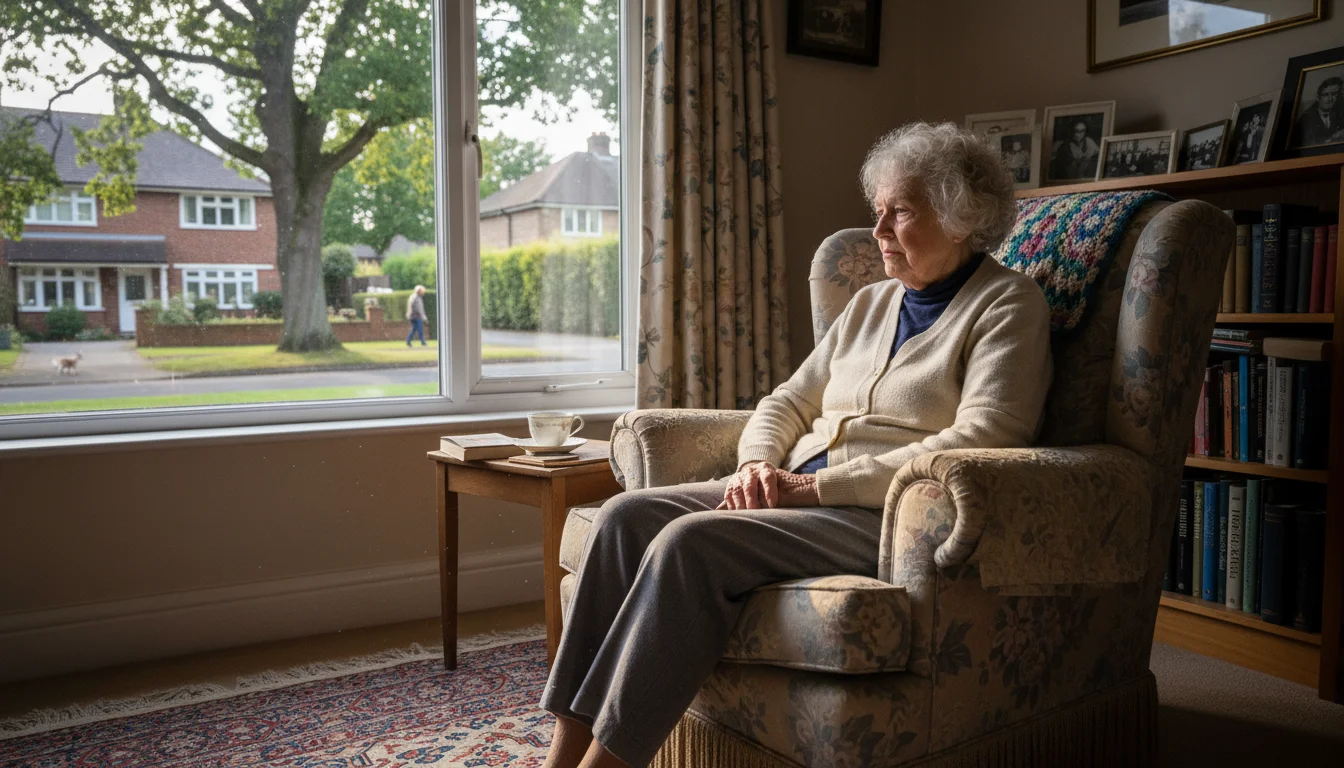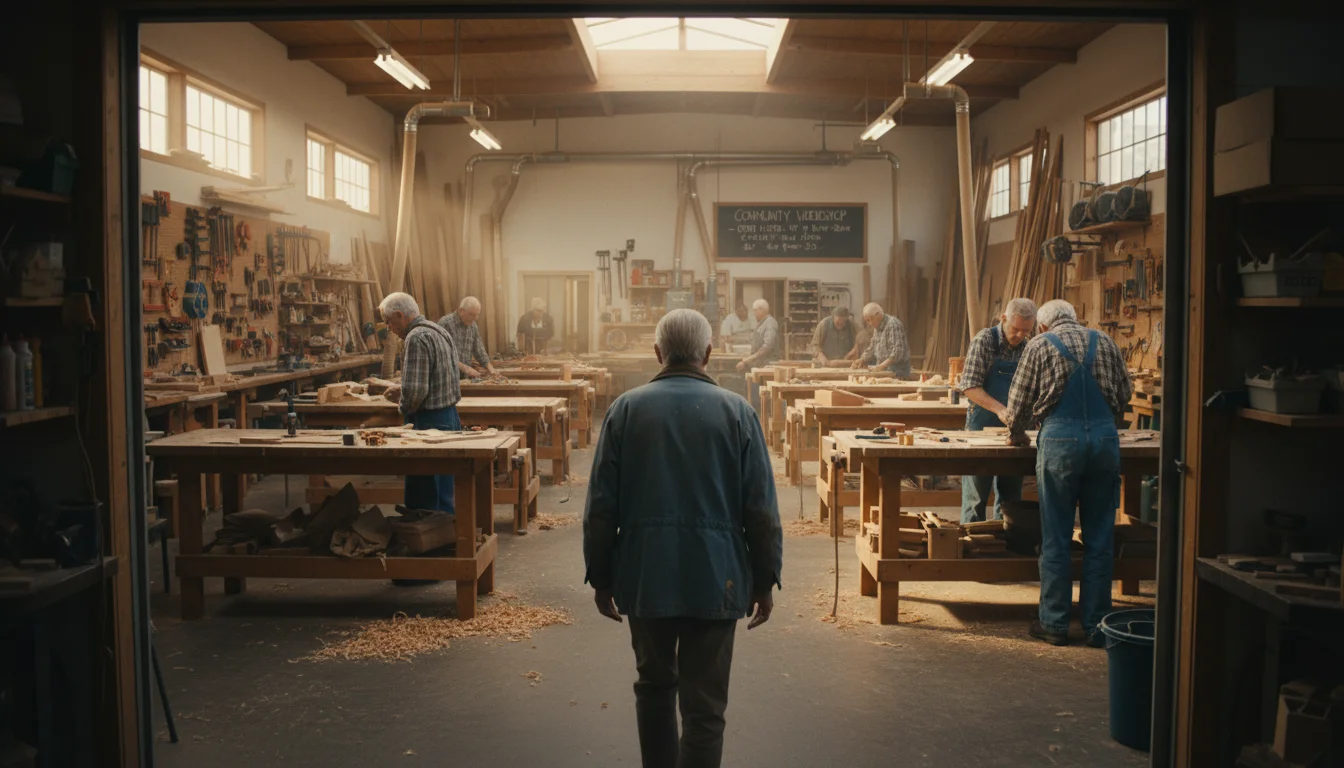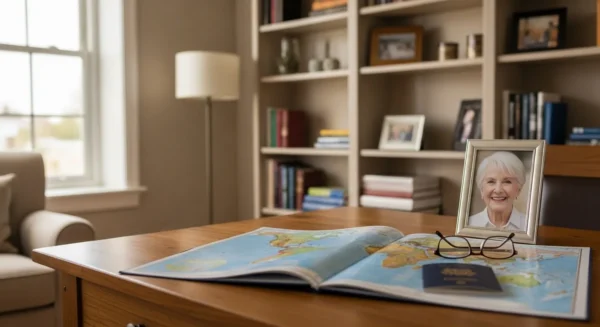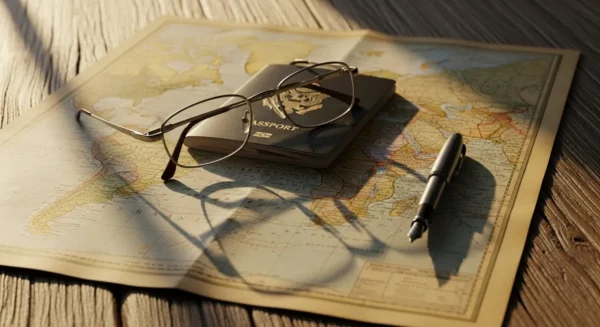The decision to move felt like the most logical thing in the world. After forty-two years of teaching history in a small Pennsylvania town, my wife Eleanor and I packed up the life we’d known. Our only daughter, Sarah, had settled down in North Carolina with her husband and our two beautiful grandchildren, and the pull of being “Grandpa” on a daily basis, instead of just on holidays, was too strong to ignore. We sold the house where we’d raised our daughter, said a hundred tearful goodbyes, and pointed our car south towards sunshine and family.
For the first few months, it was a whirlwind of blissful chaos. Unpacking boxes, painting walls, and discovering which grocery store had the best produce. The grandkids, Lily and Sam, were over constantly, their laughter filling the quiet corners of our new, smaller home. Eleanor, a natural social butterfly, had joined a book club and a gardening group before I’d even figured out the recycling schedule. For her, a new town was just a collection of friends she hadn’t met yet. For me, it was something else entirely.
Once the last picture was hung and the last box broken down, a different kind of quiet settled in. A profound, echoing silence that I hadn’t anticipated. Back home, my days had a rhythm. A morning coffee with my friend Jim at the diner, a round of golf with the guys on Tuesdays, my weekly poker game. These weren’t just activities; they were the pillars of my social life, built over decades. Here, in this sunny paradise, I was just Sarah’s dad. Lily and Sam’s grandpa. Eleanor’s husband. I felt like an accessory to someone else’s life, and the loneliness was a physical weight.

The Long, Quiet Afternoons
I tried. I really did. I’d go for long walks around our new neighborhood, offering a friendly “hello” to anyone I passed. I’d get polite nods in return, but nothing more. I went to a “community welcome” event at the local library, where I stood awkwardly by the snack table for twenty minutes, feeling completely invisible, before slipping out the side door. I even looked up a few senior social groups online, but the descriptions—bridge, bingo, bus trips—felt like a uniform I wasn’t ready to wear.
My days started to feel impossibly long. Eleanor would be off at her garden club, the grandkids would be in school, and I’d be sitting in my favorite armchair, staring out the window, feeling adrift. I love my family more than anything, but I realized something crucial during those long, quiet afternoons: a man needs his own connections. He needs a place to go where he isn’t defined by his relationship to someone else. The challenge of making friends in a new city, especially at seventy years old, felt less like an adventure and more like a daunting, insurmountable wall.
One Tuesday afternoon, Eleanor came home to find me organizing the garage for the third time in a month. She put her hand on my arm, her expression a mix of love and concern. “Arthur,” she said gently, “you look so lost. What’s wrong?”
The words just tumbled out. “I’m lonely, El. I miss my friends. I miss feeling… useful. I don’t have a place here.”
She didn’t offer a platitude or a quick fix. She just listened. The next day, she left a flyer on the kitchen counter. It was simple, printed in black and white on bright yellow paper. It read: “Oak Ridge Community Woodshop. Got time on your hands? We’ve got tools. All skills welcome. Coffee’s always on.”
I’d always been handy. I built the bookshelves in our old house and a rather wobbly treehouse for Sarah when she was a kid. But a woodshop? It felt intimidating. I left the flyer on the counter for a week, walking past it a dozen times a day, my pride and my fear wrestling with each other.

A Sawdust and Coffee Invitation
Finally, driven by sheer boredom and a healthy dose of desperation, I drove to the address on the flyer. It was an old warehouse at the edge of town, unassuming and a little rundown. I sat in my car for a full ten minutes, my hand on the door handle, telling myself I could just drive away. No one would ever know. But then I thought of those long, quiet afternoons, and I knew I had to at least try. Taking a deep breath, I got out of the car and walked inside.
The air hit me first—that wonderful, earthy smell of sawdust and machine oil. The vast space was filled with the hum and whir of sanders and saws. Men of all ages, though most were decidedly gray-haired like me, were scattered around workbenches, focused on their projects. No one looked up as I entered. I felt that familiar wave of invisibility wash over me again.
I hovered near the entrance, ready to bolt, when a tall, wiry man with a magnificent white mustache and safety glasses perched on his forehead walked over. “First time?” he asked, his voice a friendly rumble over the noise of the machines. I must have looked like a deer in the headlights.
“Uh, yes,” I managed to stammer. “Just looking.”
“Name’s Frank,” he said, extending a calloused, dusty hand. “I run this place, for my sins. Coffee’s in the back. Help yourself. Have a look around. If you see something you want to work on, just give a shout.”
And that was it. No interrogation, no forced small talk. Just a simple, welcoming gesture. I poured myself a cup of surprisingly good coffee and walked around the shop. I saw a man meticulously restoring an old rocking chair, its wood stripped bare. Another was carefully carving a small wooden bird. A few others were working together to build what looked like a set of cabinets for a local charity. It wasn’t a social club; it was a place of purpose.
I didn’t pick up a tool that day. I just watched and listened. I learned more about the men in that room from their quiet concentration and the occasional bit of advice shared over a spinning lathe than I would have in hours of forced conversation. When I left, Frank just nodded. “See you next time,” he said. It wasn’t a question.

Building More Than a Bookcase
I went back two days later. And then the day after that. I started small, finding a piece of scrap pine and just practicing cuts, getting the feel of the professional-grade saws. Frank showed me how to use the jointer safely. A quiet man named Bill, a retired engineer, gave me a tip on how to get a perfect finish with sandpaper. We didn’t talk about what we used to do for a living or where we were from. We talked about wood grain, about router bits, about the stubbornness of a warped board.
My first real project was a small set of bookshelves for Lily’s room. It was simple, but it was mine. As I worked, conversations started to happen naturally. I learned that Bill was also a transplant, having moved to be near his son’s family. I learned that Frank started the shop after his wife passed away because he couldn’t stand the silence in his own house. We were a collection of men from different backgrounds, drawn together not by a need for friendship, but by a shared need to do something.
The friendships came as a byproduct. One day, Bill and I were struggling with a tricky joint on the bookshelves. After 20 minutes of frustration, he finally said, “You know, this is harder than designing a suspension bridge.” It was the first time he’d ever mentioned his old career. I laughed and told him it was certainly more complicated than explaining the fall of the Roman Empire to a classroom of teenagers. A bridge was crossed. We weren’t just two old guys with sawdust in our hair anymore. We were Bill and Arthur.
Slowly but surely, my life in North Carolina began to take on a new shape. My “shop days” became the anchor of my week. I had stories to tell Eleanor over dinner. I had inside jokes with Frank and Bill. I was part of a team that built wheelchair ramps for community members and toy chests for a local children’s hospital. I was building a support network, one board and one conversation at a time. The new community after moving wasn’t something I found; it was something I helped build.
Last week, Eleanor and I hosted a backyard barbecue. Sarah and her family were there, of course. So were Eleanor’s friends from her clubs. And sitting at the big picnic table, arguing good-naturedly about the best way to stain a deck, were Frank, Bill, and two other guys from the woodshop. Seeing my new friends mingling with my family, hearing the easy laughter fill our yard, I felt a sense of profound contentment. I wasn’t an accessory anymore. I was home.
Finding your place after a big life change isn’t easy. It takes courage to walk into a room full of strangers. It takes patience to let connections grow organically. And most of all, it takes being honest with yourself about what you need. For me, it wasn’t a social club. It was a shared purpose. It was the smell of sawdust and the satisfaction of a job well done. It was finding a place where I could be useful again, and in the process, finding a community I never knew I was looking for.
For expert guidance on senior health and finance, visit Medicare.gov, National Institute of Mental Health (NIMH), National Institutes of Health (NIH), Centers for Medicare & Medicaid Services (CMS) and Social Security Administration (SSA).
|
Fact-Checked Content
Our editorial team reviews all content for accuracy and updates it regularly. Learn about our editorial process →
|


















